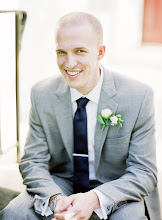As a teenager, Johnathan Blake received a blessing from the late high priest of jazz drumming: Max Roach.
“He came up to me and he’s like, ‘You’re the 17-year-old boy wonder,’” recalled Blake, who met Roach at a jazz camp. “He had a lot of encouraging words. He’s like, ‘Man, I’ve been hearing a lot about you. People have been talking.’”
People still talk about Blake these days, but the discussion centers less on his age (he’s now 32) than on his ubiquity among the leading lions of jazz. To wit: You can hear his ferocious drumming on five releases this year alone, including discs by Donny McCaslin and Joe Locke.
Blake’s journey from promising adolescent to first-call pro bears all the markers of a classic coming-of-age jazz tale—including guidance from seasoned mentors before later forays into composition and band leadership. It just so happens that one of those mentors was his father, jazz violinist John Blake Jr.
The younger Blake initially followed in his father’s footsteps, starting on the violin at age 3. He soon added percussion to his musical arsenal, going on to play drums in youth bands around Philadelphia. The scene was rich with young jazz players. “We’d call each other – “Do you have this?” – you know, playing music over the phone for each other,” Blake said. “And we’d start trading CDs, not knowing that we were really building our vocabulary and musical language.”
Blake’s vernacular expanded further when he harnessed up for his high school drumline, and it became clear that his heart laid with the drums, not the violin. He decided to hang up the violin for good. His father acquiesced, but only under the condition that he begin piano lessons, which Blake now considers a blessing. “It really helped me be more conscious of melodies and learning how to phrase tunes,” he said.
With that, Blake’s musical personality began to take root: a combination of jazz acumen, marching band chops and classical sensibility. Still, he struggled with self-control. “I was definitely more focused on how to do the slickest stuff,” Blake said. Then came a lesson in fundamentals from Rufus Reid, when Blake studied with him at William Paterson University.
“For a month, this cat didn’t let me play anything except for the cymbal and the hi-hat,” Blake said. “The reason he did that was so I could get the clarity of my cymbal sound. Later on, I was like, ‘I want to thank you, because it really helped shape my playing.’”
Having made these strides in his early college days, Blake developed a reputation as a gifted, joyous musician, and opportunities abounded. Saxophonist Oliver Lake hired the 20-year-old for a weekly gig at the Knitting Factory. Then, John Stubblefield, a sax player in Lake’s band, took a liking to Blake’s ride cymbal playing – credit Reid – and introduced him to the Mingus Big Band. He was hired on for a European tour and manned the drum chair for the next 10 years, along the way playing and recording with Randy Brecker and Conrad Herwig, among others.
Now that Blake has become a mainstay on the New York scene – known for occasionally stealing shows with his intricate flurries and flutters on the drums – he’s sharpening his pen and going DIY. He recently finished up his Master’s degree in composition at Rutgers University, and he’ll showcase his writing in the studio this winter with a quintet that includes pianist Robert Glasper and saxophonist Jaleel Shaw, a longtime cohort. He plans to put the album out himself.
